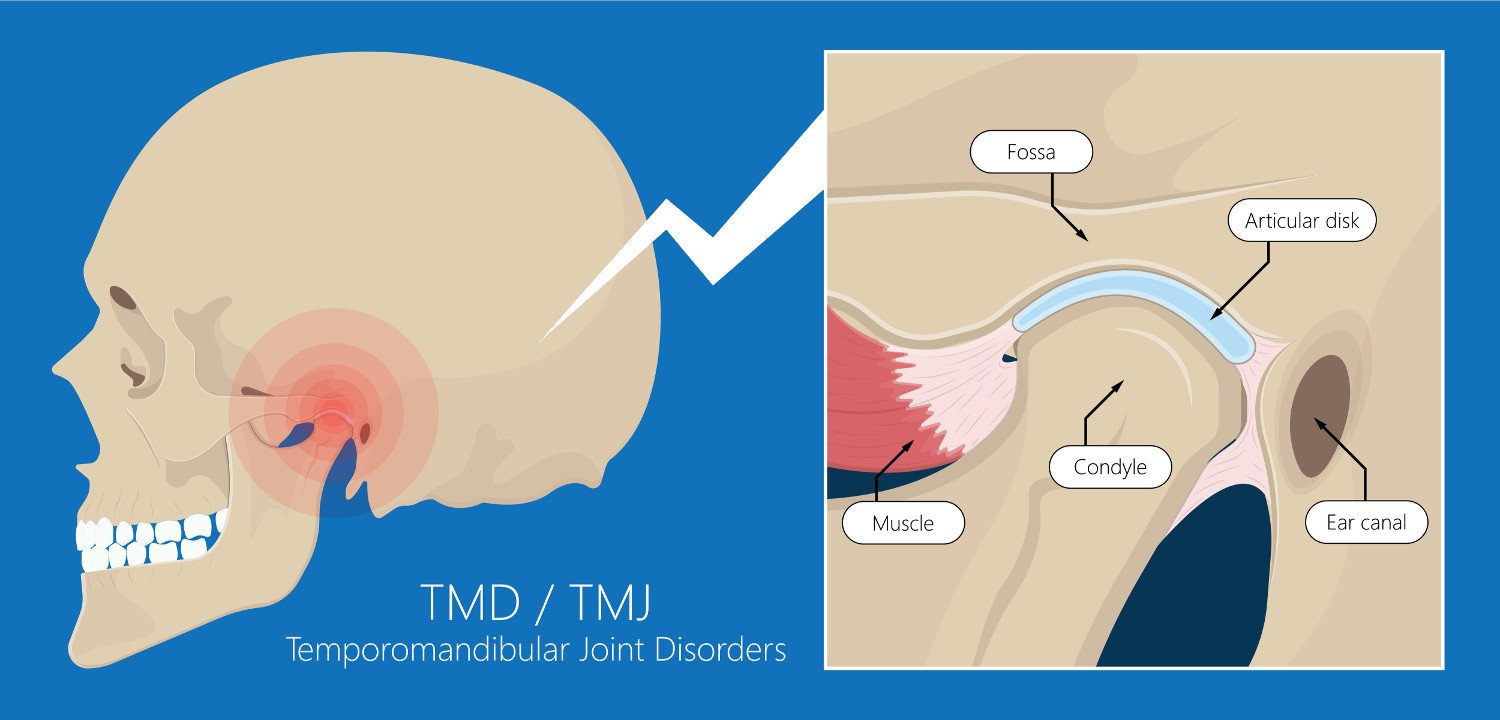1. Understanding TMJ Dysfunction
Temporomandibular joint dysfunction, commonly referred to as TMJ, involves pain and dysfunction of the jaw joint and surrounding muscles. It can cause discomfort, clicking sounds, limited movement, and even headaches or earaches. Understanding the causes, which may include stress, jaw injury, or teeth misalignment, is crucial in developing effective self-care strategies.TMJ dysfunction involves pain and limitations in the jaw joint and surrounding muscles. Self-care for TMJ issues includes lifestyle adjustments, relaxation techniques, exercises, and nutritional considerations. Understanding its causes, like stress or jaw misalignment, is crucial for effective self-care strategies aimed at managing and alleviating TMJ symptoms.
- Self-Care Strategies
- Making certain lifestyle changes can significantly alleviate TMJ symptoms. These may include:
- Diet Adjustments: Avoiding hard or chewy foods, as well as excessive chewing gum, can reduce strain on the jaw joint.
- Posture Improvement: Maintaining good posture, particularly in the neck and shoulders, can ease TMJ discomfort.
- Stress Management: Techniques such as meditation, yoga, or deep breathing exercises can help in reducing stress-induced jaw clenching.
2. Relaxation Techniques
Various relaxation methods can aid in minimizing muscle tension:
- Heat and Cold Therapy: Applying heat or cold packs to the jaw area can alleviate pain and relax muscles.
- Massage: Gentle massages to the jaw joint and surrounding muscles can provide relief.
- Biofeedback: This technique helps individuals learn to control muscle tension and reduce stress on the jaw joint.
3. Physical Therapy and Exercises
Specific exercises and physical therapy can improve jaw mobility and strength:
Stretching Exercises: Gentle stretching of the jaw muscles can enhance flexibility and reduce tension.
Strengthening Exercises: Exercises that target the muscles supporting the jaw can aid in stability and reduce discomfort.
Manual Therapy: Techniques performed by a physical therapist or chiropractor can alleviate pain and improve jaw movement.
4. Nutritional Considerations
Certain dietary considerations can contribute to managing TMJ:
- Soft Diet: Opting for softer foods that require less chewing can ease strain on the jaw joint.
- Avoidance of Trigger Foods: Foods that are hard to chew or excessively sticky should be avoided to prevent exacerbating symptoms.
- Hydration: Staying adequately hydrated can prevent muscle tension and maintain overall joint health.
:max_bytes(150000):strip_icc():format(webp)/jawpainfinal-01-5c05db6946e0fb00013feb39-b9defccf15c84163bd58f796ff760b6c.png)
5. Conclusion:
Self-care strategies for TMJ dysfunction can be highly effective when consistently practiced. Lifestyle adjustments, relaxation techniques, physical therapy, and mindful nutritional choices collectively contribute to managing symptoms and improving the quality of life for individuals dealing with TMJ issues.
6. FAQs
Q1: Are self-care strategies enough to treat severe TMJ dysfunction?
A: While self-care methods can provide relief for many, severe cases of TMJ dysfunction might require additional interventions like medical treatments, dental procedures, or consultations with specialists.
Q2: How long does it typically take for self-care strategies to show improvement in TMJ symptoms?
A: The timeline for improvement varies among individuals. Consistent application of self-care methods, along with patience, often leads to gradual improvement within a few weeks to months.
Q3: Can TMJ dysfunction return after successfully using self-care strategies?
A: Yes, especially if the underlying causes such as stress or teeth misalignment persist. Continuation of self-care practices and addressing contributing factors is important to prevent recurrence.
